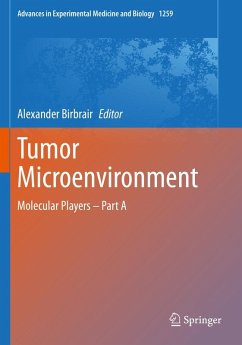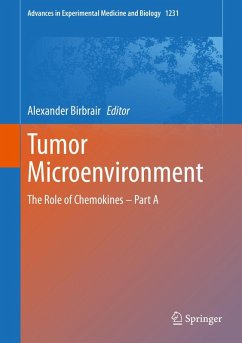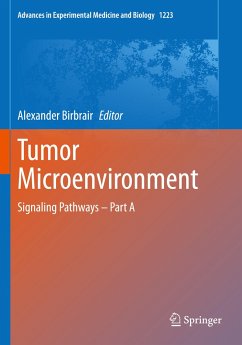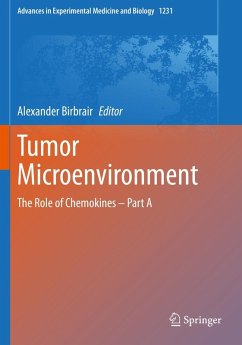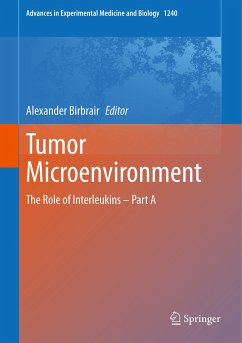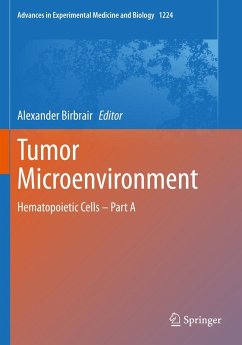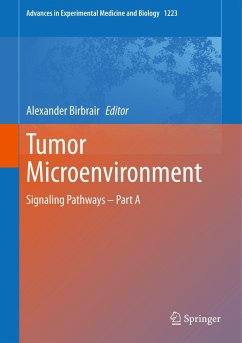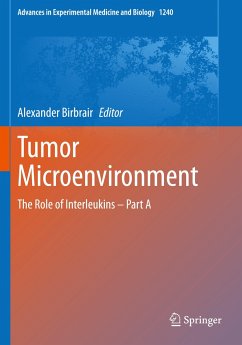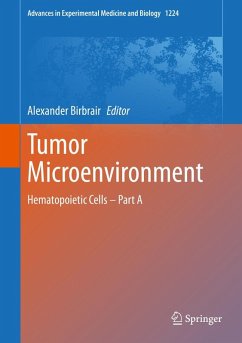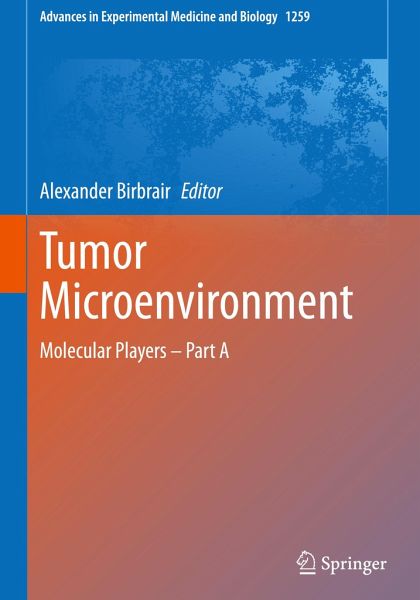
Tumor Microenvironment
Molecular Players - Part A
Herausgegeben: Birbrair, Alexander

PAYBACK Punkte
57 °P sammeln!
This book provides a comprehensive overview of the latest research on the molecular players in the tumor microenvironment, including Cathepsin D, galectins, iron, oxygen, Phospholipase D1, leptin, extracellular vesicles, and more.
Taken alongside its companion volumes, these books update us on what we know about the tumor microenvironment as well as future directions. Tumor Microenvironment: Molecular Players - Part A is essential reading for advanced cell biology and cancer biology students as well as researchers seeking an update on research in the tumor microenvironment.
Taken alongside its companion volumes, these books update us on what we know about the tumor microenvironment as well as future directions. Tumor Microenvironment: Molecular Players - Part A is essential reading for advanced cell biology and cancer biology students as well as researchers seeking an update on research in the tumor microenvironment.





